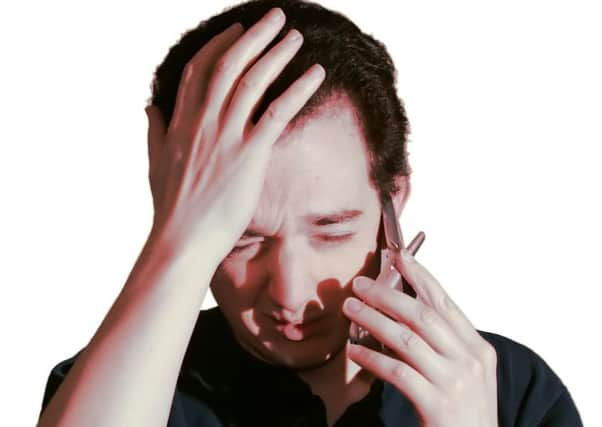James Jopling: Five myths about suicide in Scotland set straight


Suicide is a topic laden with myths and half-truths. Following last month’s new report on Suicide in Scotland, we thought we’d take the opportunity to try and address some of these.
Suicide is a tragic issue that only affects a few
The recently released figures show that suicides in Scotland have fallen for the fifth year running, which is truly welcome news. Yet 672 people still took their own lives in Scotland in 2015. That’s nearly two every day. The loss of each one of these lives is a uniquely deeply felt tragedy which will have had a devastating effect on each of those families and communities across Scotland last year. Between 2009 and 2014 nearly 4,500 people died from suicide in Scotland. Suicide is not a niche issue; despite being rarely openly discussed it does not affect only a few. In fact, it remains the biggest killer of men under 50 in the UK and of young people aged 20-34. Whether or not we’re talking about suicide, it is still a major public health issue that affects far too many of the people we love.
Suicide affects all of society equally
Advertisement
Hide AdAdvertisement
Hide AdWhile we may feel that suicide affects society equally, the unavoidable truth is that the risk of a person taking their own life is substantially increased according to how disadvantaged they may be. Indeed, the lower your social class, the more likely you are to be affected by suicide in Scotland.While we still don’t understand enough about why suicide is so strongly linked to deprivation, what’s clear is suicide is an unjust and avoidable difference in length of life that results from being disadvantaged –and this demands our attention and further action.
Suicide affects men and women similarly
It’s understandable to think of suicide as something that would, at least roughly, affect both genders equally. In fact, around three quarters of deaths by suicide in Scotland are men. As our Men, Suicide and Society report showed, there are many reasons for this, not least the large gap between the reality of life for some men and the masculine “ideal”. When problems do arise, men are also far more likely to respond to stress by taking risks, like misusing alcohol and drugs, which further increases the chance of them taking their life. In order to begin addressing this issue, we must first take account of men’s views of what it is to “be a man” and understand the challenges of meeting that ideal today.
Those who take their own lives are suffering from mental illness
Many thousands of people living with mental ill health are not affected by suicidal thoughts and not all people who take their own life have a mental illness. Most people who die by suicide in Scotland have no contact with specialist mental health services in the 12 months before their death. Some of those who went on to take their own life may not have been getting the help they needed. However, suicidal behaviour is more complex than a devastating act resulting from mental ill health. For example, access to lethal methods such as drugs, guns, even high bridges without barriers, can have an impact on a person’s risk level. Similarly, irresponsible media reporting of deaths by suicide, impulsivity and being bereaved by suicide also have a real impact, while they do not increase risk of mental health disorders.
There are times of the year at which people are more likely to take their own life
While we all know that some times of the year can be harder than others, there is no association between suicide rates and month of the year in Scotland. Nor are there significantly more or fewer suicides during the Christmas period or around New Year. Suicides happen all year round, every day. Which is why our service is there for everyone, every minute of every day.
If someone is intent on taking their own life, it is inevitable – and approaching that person and the subject will make it worse.
This is not true. Heightened suicide risk is often short term and situation specific. Given the huge stigma attached, people often don’t know who to speak to about these feelings. Rather than encouraging suicidal behaviour, talking openly can allow a person the time and space to think.
Advertisement
Hide AdAdvertisement
Hide AdWe know the value of listening when people feel this way, and if we all got just a little better at talking to people we know, it would help save lives. Tomorrow is World Suicide Prevention Day – let someone know that it’s OK to talk. • James Jopling, executive director, Samaritans Scotland. If you need Samaritans, call 116 123 free.